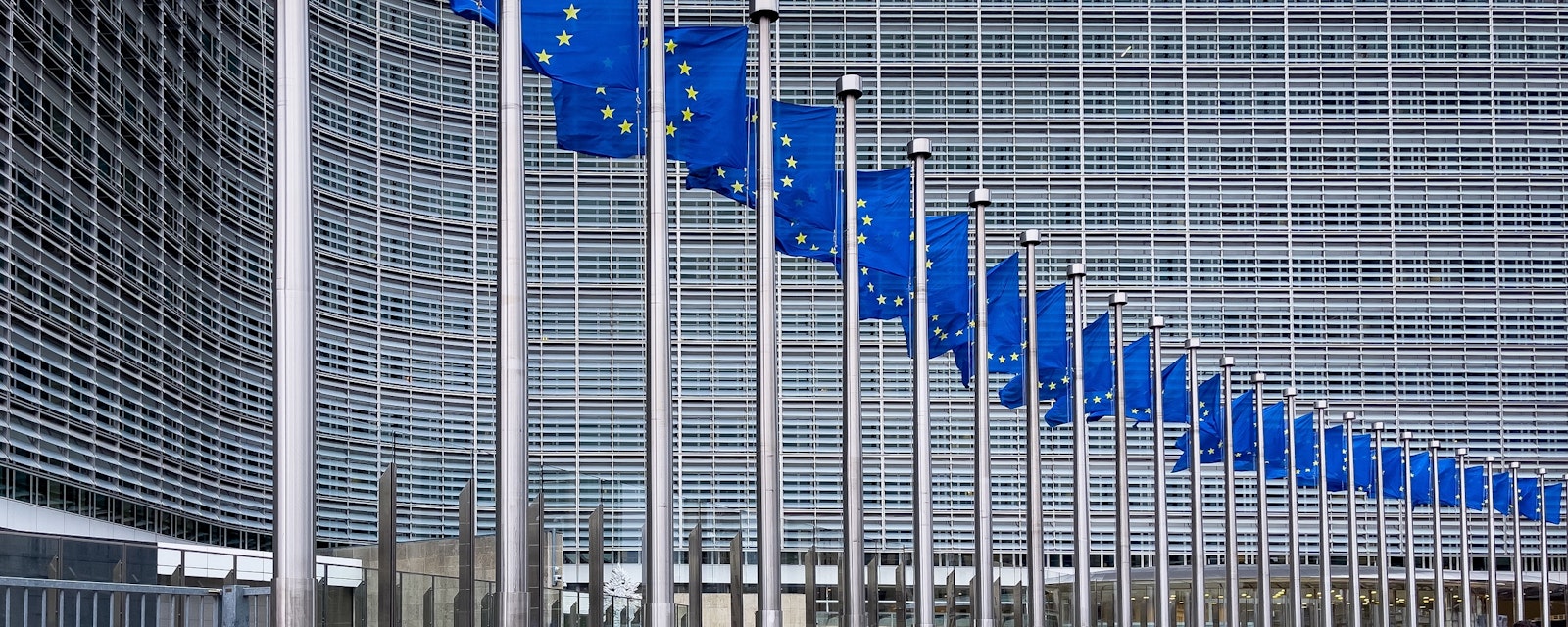The European Green Deal is an ambitious plan which aims to make the European Union (EU) “climate proof.” It is a key legacy of the Von der Leyen Commission and is still ongoing. Shortly after the last European elections in 2019, the new Commission President announced plans to make the EU the first net zero continent in the world by 2050 and to reduce its greenhouse gas emissions by 55% by 2030, despite the many political and cultural differences among member states and citizens on climate change.
The EU set out to do this by progressively adopting a long list of new initiatives, revising existing rules in several sectors – from energy, housing and food to biodiversity, batteries, steel, air pollution or the circular economy – as well as redefining its financial priorities to facilitate the huge public and private investments needed to support it. This momentous approach remains one of the most visible illustrations of the so called “Brussels effect,” an infamous expression coined by Professor Anu Bradford of Columbia University reflecting the capacity of the EU to set an ambitious global standard by moving first. As we reach the end of the current European electoral cycle over four years later, the Green Deal is almost completed, with agreements – sometimes hotly debated – on all energy files, biodiversity, nature restauration and air pollution.
Not everything was achieved, however, as negotiators faced a dead end on energy taxation and pesticide reduction. A few initiatives still need to be finalized, such as the Net Zero Industry Act, with a disappointing compromise looming. As the file moved from the European Parliament to the Council, the text was weakened. Member states did not reach a compromise on the need to first invest in solutions that can rapidly ensure emission reductions and new economic activity, namely renewables and energy efficiency, while the list of strategic net zero technologies was expanded to include nuclear power and give a greater role to carbon capture and storage (CCS), even though the latter was already mentioned in the Commission's original text.
Another underwhelming compromise was reached on the Stability and Growth Pact. By excluding the deduction of investments and expenses linked to the green transition from the calculation of national deficits, the EU risks going back to a counterproductive period of austerity and fragmentation of the internal market. Although we won’t see any further legislative proposals related to the Green Deal before the end of the current term, non-legislative plans on the 2040 climate target, small modular reactors, CCS and water resilience could come out before Belgium, which currently holds the rotating presidency of the EU Council, closes the legislative cycle at the end of the first quarter of this year. The 2040 climate target could then be discussed before the new Commission takes office towards the end of the year.
Despite the enormous effort put in by officials and the results achieved, this was not an easy ride. As we saw during the Global Financial Crisis from 2008-2012, the Covid-19 pandemic and Ukraine war, global disruption often means environmental priorities are put on the backburner. Energy-intensive industries did not wind down their activity as much as was expected, as the objective complexity of the Green Deal and the legitimate concerns of many citizens surfaced. Sustainable economic actors were not (and still are not) as effective in making their case, while the mobilization of millions of young people faded away with the onset of the pandemic. Over the last year or so, some mainstream conservatives and liberal parties have seen attacking the Green Deal as an easy way to gain short-term consensus and joined forces in the European Parliament and at a national level with populist and eco-sceptic voices. This had a major impact on all nature, agriculture and biodiversity initiatives. If this negative approach towards green initiatives continues in the new cycle, there could also be an impact on the national implementation of legislation that has already been agreed.
As we approach the European elections in June, the big question is whether the Green Deal’s complex (and weakened) legislative framework will manage to emerge somewhat untouched from a destructive and negatively polarized political fight by preserving its initial and challenging ambition. There is also a question mark over whether there will be enough consensus in European institutions after the elections to go further, not only to deliver on net zero emissions by 2050, but also to create opportunities for innovation, a competitive economy, quality jobs and a better life for Europeans. “Climate boiling” is accelerating in the EU, as demonstrated by increasingly frequent extreme weather events. The Commission has already made it clear that, without further measures, the EU will not reach all its decarbonization goals. If we fail, the “Brussels effect” would also be weakened and the EU’s soft power would suffer on the global stage.
The European Green Deal is now a reality in terms of standards and rules, even if it is less ambitious than originally expected. The election campaign is an opportunity to address the misconception that moving forward with the green transition means harming the most vulnerable. Business and civil society have an important role to play to avoid a split along partisan lines.
The only way to do this is to go back to the very reasons that led the EU to commit to becoming the first zero-emission continent and to recreate the powerful link between scientific evidence, the mobilization of businesses and civil society, and media attention. This will help politicians to understand what they stand to gain, not lose, by promoting the green cause.





